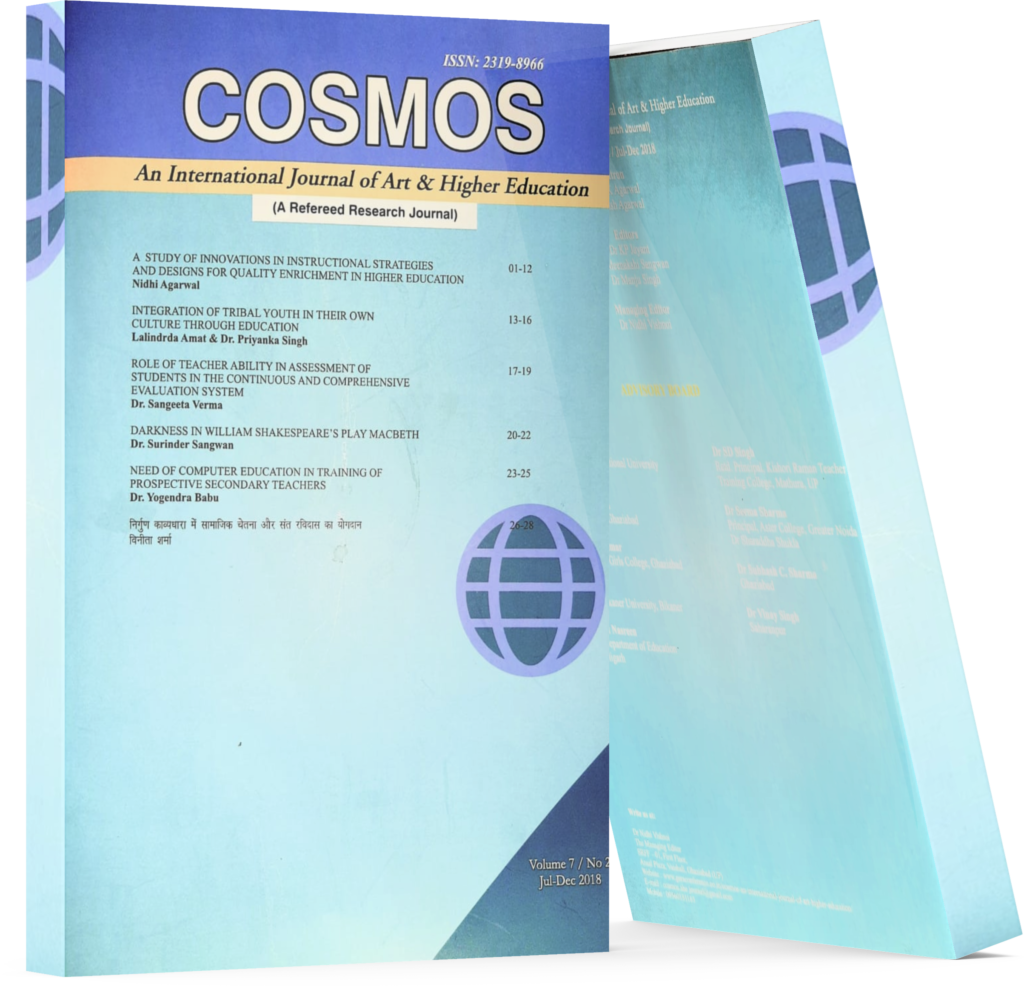Need Of Sport Psychology For Sports Person’s Performance And Mental Well-Being
Keywords:
Sport,, Psychology, Sports PersonAbstract
The field of sport psychology is crucial for enhancing athletic performance and promoting mental well-being, making it an essential component in the world of sports. By exploring the psychological aspects of sports person, it reveals tactics that enhance performance while protecting their emotional well-being. This specialised field functions as a guiding influence in establishing and attaining objectives, refining focus, and handling pressures and worries amongst the demands of training and competition. Its importance transcends the specific domain, assisting sports person in surmounting obstacles, injuries, and cultivating resilience when confronted with difficulties. Sport psychology focuses on equipping players with mental skills, such as visualisation techniques, positive self-talk, and efficient coping mechanisms, rather than solely improving physical ability. Such comprehension cultivates assurance, resilience, and an optimistic outlook that are essential for long-term achievement and individual welfare. Sport psychology goes beyond the outcome of a game and focuses on the comprehensive development of sports person, including their mental strength and ability to achieve optimal performance and long-lasting mental resilience.
Downloads
References
Thom, Christiana Bedard, Guay, Frederic and Trottier, Christiane (2021). Mental toughness in sport: The Goal-Expectancy-Self-Control (GES) model. Journal of Applied Sport Psychology, 33(6), 627-643.
DOI: 10.1080/10413200.2020.1808736 2. Hings, Rebecca F., Wagstaff, Christopher R.D., Anderson, Valerie, Gilmore, Sarah and Thelwell, Richard C. (2020). Better Preparing Sports Psychologists for the Demands of Applied Practice: The Emotional Labor Training Gap, Journal of Applied Sport Psychology, 32(4), 335-356.
DOI: 10.1080/10413200.2018.1560373 3. Thakkar, Anoushka (2019). Sports Psychology and its need in India. Indian Journal of Mental Health, 7, 143-147.
Ohuruogu, Dr. Ben, Jonathan, Ugwuanyi. I. and Ikechukwu, Ugwu Jude (2016). Psychological Preparation for Peak Performance in Sports Competition. Journal of Education and Practice, 7(12), 47-50.
Hill, A.P., Mallinson-Howard, S.H. & Jowett, G.E. (2018). Multidimensional perfectionism in sport: A meta-analytical review. Sport, Exercise, and Performance Psychology, 7(3), 235-270.
Hatzigeorgiadis, A., Zourbanos, N., Galanis, E. and Theodorakis, Y. (2011). Self-talk and sports performance. Perspect Psychol Sci., 6(4), 348-56, 10.1177/1745691611413136.
Cumming, J. and Eaves, D.L. (2018). The nature, measurement, and development of imagery ability. Imag Cog Pers., 37(4), 375- 393. doi: 10.1177/0276236617752439
Sheeran, P. and Webb, T.L. (2016). The intention-behavior gap. Soc Pers Psychol Comp., 10(9), 503-18. 10.1111/spc3.12265.

